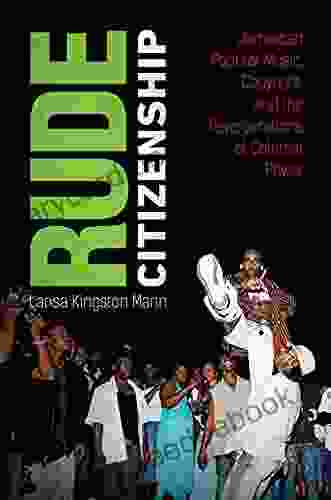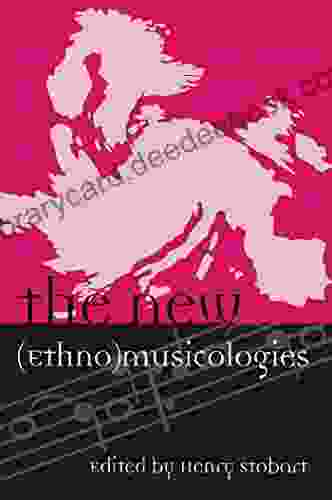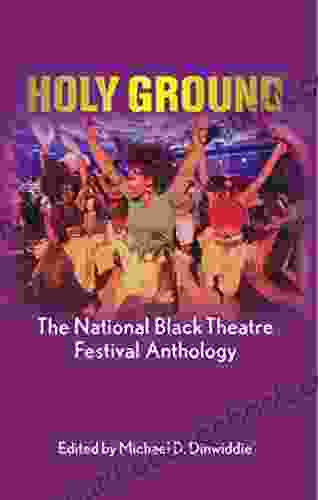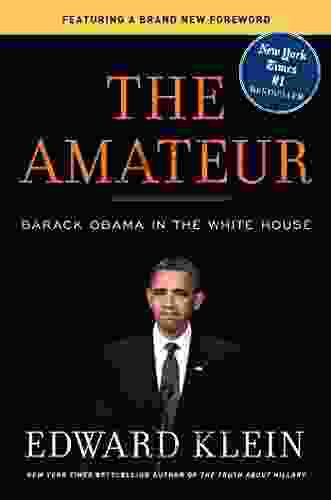Jamaican Popular Music Copyright and the Reverberations of Colonial Power

5 out of 5
| Language | : | English |
| File size | : | 2368 KB |
| Text-to-Speech | : | Enabled |
| Enhanced typesetting | : | Enabled |
| Word Wise | : | Enabled |
| Print length | : | 236 pages |
| Screen Reader | : | Supported |
Jamaican popular music has a long and rich history, stretching back to the early days of the island's colonial period. Over the centuries, Jamaican music has evolved and changed, reflecting the island's complex political, social, and cultural history. One of the most important factors that has shaped the development of Jamaican music is copyright law.
Copyright law is a body of laws that protect the rights of creators of original works, such as music, literature, and art. Copyright law gives creators the exclusive right to reproduce, distribute, and sell their work, and to create derivative works based on their work.
In Jamaica, copyright law was first introduced in the late 19th century, as part of the island's British colonial regime. The purpose of copyright law was to protect the interests of British publishers and record companies, who were concerned about the unauthorized reproduction and distribution of their work in Jamaica.
The of copyright law had a profound impact on the development of Jamaican music. Prior to the of copyright law, Jamaican musicians were able to freely perform and record each other's songs without fear of legal repercussions. However, after the of copyright law, Jamaican musicians were forced to obtain permission from the copyright holders before they could perform or record each other's songs.
This had a number of negative consequences for Jamaican music. It made it more difficult for Jamaican musicians to collaborate with each other, and it stifled the development of new and innovative musical styles. Additionally, it made it more difficult for Jamaican musicians to earn a living from their work, as they were now required to pay royalties to copyright holders.
Despite the negative consequences of copyright law, Jamaican musicians have also found ways to use it to their advantage. In particular, they have used copyright law to challenge the colonial power structure and to promote social change.
For example, in the 1970s, the Jamaican reggae musician Bob Marley used his music to challenge the Jamaican government's oppressive policies. Marley's songs were often critical of the government, and they helped to raise awareness of the social and political issues facing the Jamaican people.
Marley's music also inspired other Jamaican musicians to use their music to address social issues. For example, the reggae musician Peter Tosh wrote songs about poverty, racism, and war. And the reggae musician Bunny Wailer wrote songs about the importance of African liberation.
The music of Bob Marley and other Jamaican musicians helped to raise awareness of social and political issues, and it inspired people to take action to create a more just and equitable world. In this way, Jamaican popular music has been a powerful force for social change.
The history of Jamaican popular music copyright is a complex one, and it reflects the island's complex political, social, and cultural history. Copyright law has been used to control and exploit Jamaican musicians, but it has also been used to challenge the colonial power structure and to promote social change. Jamaican popular music has the potential to be a powerful force for good, and it is important to understand the ways in which copyright law has been used to shape its development.
References
- Chang, K. (2005). The Routledge companion to music and copyright. Routledge.
- Hesmondhalgh, D. (2007). The cultural industries: A critical . SAGE.
- Marshall, P. (2011). Copyright, intellectual property, and the information economy. Routledge.
- Nettleford, R. M. (2002). Jamaican popular music: The making of a national identity. Macmillan Caribbean.
- Tosh, P. (2013). The lyrics of Peter Tosh. BookBaby.
5 out of 5
| Language | : | English |
| File size | : | 2368 KB |
| Text-to-Speech | : | Enabled |
| Enhanced typesetting | : | Enabled |
| Word Wise | : | Enabled |
| Print length | : | 236 pages |
| Screen Reader | : | Supported |
Do you want to contribute by writing guest posts on this blog?
Please contact us and send us a resume of previous articles that you have written.
 Novel
Novel Chapter
Chapter Reader
Reader Newspaper
Newspaper Paragraph
Paragraph Bookmark
Bookmark Shelf
Shelf Foreword
Foreword Preface
Preface Synopsis
Synopsis Annotation
Annotation Footnote
Footnote Scroll
Scroll Codex
Codex Tome
Tome Bestseller
Bestseller Library card
Library card Autobiography
Autobiography Memoir
Memoir Reference
Reference Encyclopedia
Encyclopedia Dictionary
Dictionary Thesaurus
Thesaurus Character
Character Catalog
Catalog Card Catalog
Card Catalog Borrowing
Borrowing Stacks
Stacks Archives
Archives Periodicals
Periodicals Research
Research Journals
Journals Special Collections
Special Collections Literacy
Literacy Study Group
Study Group Dissertation
Dissertation Storytelling
Storytelling Reading List
Reading List Book Club
Book Club Textbooks
Textbooks Lucy Waymire
Lucy Waymire Daniel Goleman
Daniel Goleman Michel Zohar Ben Dor
Michel Zohar Ben Dor Stephen Allen
Stephen Allen John Whitaker
John Whitaker Terry Macalister
Terry Macalister Samuel C Woolley
Samuel C Woolley Simon Archer
Simon Archer Kurt Tucholsky
Kurt Tucholsky Jill M Sullivan
Jill M Sullivan Michael K Honey
Michael K Honey Jack Steen
Jack Steen Cindy Perman
Cindy Perman Ian Boydon
Ian Boydon Frank Nielsen
Frank Nielsen Kelley W Powell
Kelley W Powell Sabra Waldfogel
Sabra Waldfogel Elyssa Friedland
Elyssa Friedland Paul A Djupe
Paul A Djupe Grace Gilmore
Grace Gilmore
Light bulbAdvertise smarter! Our strategic ad space ensures maximum exposure. Reserve your spot today!

 John Dos PassosBadland Bride: A Tale of Love, Loss, and Redemption in the Heart of the...
John Dos PassosBadland Bride: A Tale of Love, Loss, and Redemption in the Heart of the...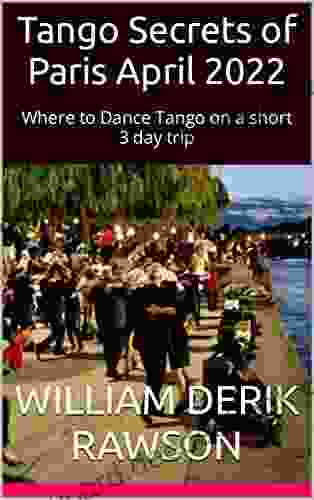
 Clarence BrooksEmbark on an Enchanting Tango Journey at Tango Secrets of Paris April 2024
Clarence BrooksEmbark on an Enchanting Tango Journey at Tango Secrets of Paris April 2024 Xavier BellFollow ·9.7k
Xavier BellFollow ·9.7k Glenn HayesFollow ·10.6k
Glenn HayesFollow ·10.6k Henry GreenFollow ·10.2k
Henry GreenFollow ·10.2k Guy PowellFollow ·13.3k
Guy PowellFollow ·13.3k Ivan TurgenevFollow ·15.9k
Ivan TurgenevFollow ·15.9k Kenzaburō ŌeFollow ·9.2k
Kenzaburō ŌeFollow ·9.2k Nick TurnerFollow ·3.7k
Nick TurnerFollow ·3.7k Vince HayesFollow ·16.1k
Vince HayesFollow ·16.1k

 Braden Ward
Braden WardPopular Classical Carols of All Time for Beginner Trumpet...
Christmas is a time...

 Galen Powell
Galen PowellDark Secrets Unraveled: Exploring the Enigmatic Dark 15
In the depths of the...
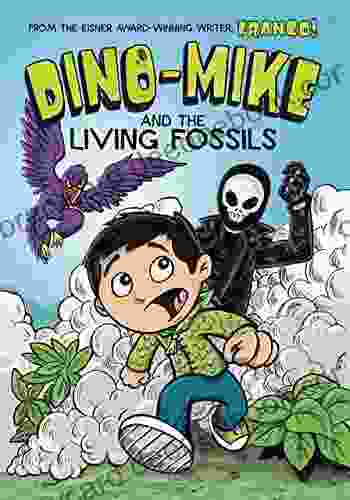
 Michael Chabon
Michael ChabonDino Mike and the Living Fossils: Unlocking the Secrets...
In a world teeming...
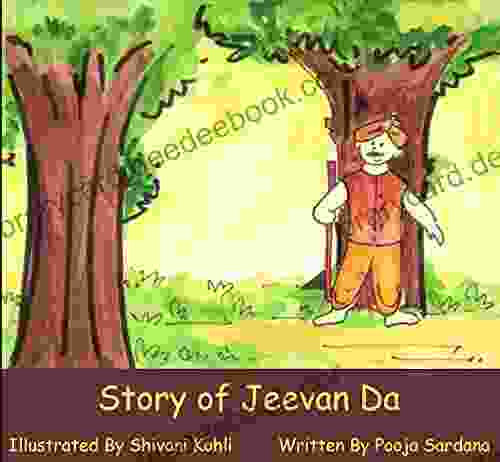
 Henry Green
Henry GreenThe Enchanting World of Jeevan: A Journey Through the...
In the realm of children's...
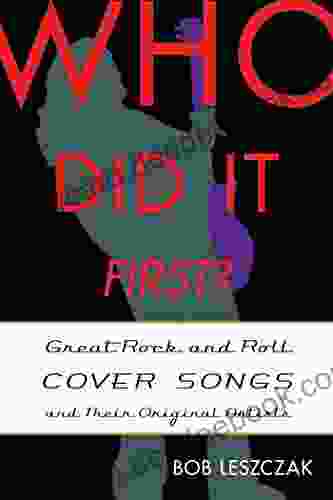
 Kirk Hayes
Kirk HayesWho Did It First: A Comprehensive History of Human...
Innovation is the...
5 out of 5
| Language | : | English |
| File size | : | 2368 KB |
| Text-to-Speech | : | Enabled |
| Enhanced typesetting | : | Enabled |
| Word Wise | : | Enabled |
| Print length | : | 236 pages |
| Screen Reader | : | Supported |


